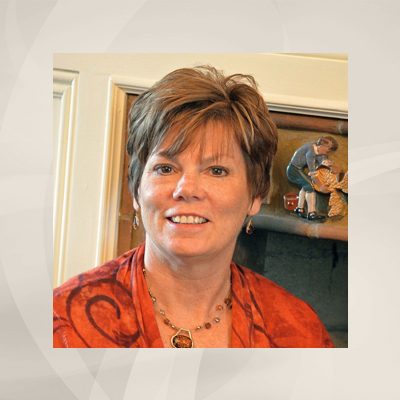Feeling Normal: Deb’s Story
“I was an educator, and I still didn’t know anything about breast cancer,” says Debbie Cassi, her voice rising in wonder at her naivety. “And then, I had a breast cancer diagnosis.”
But it wasn’t quite that simple. Surprisingly, one spring day in 2007, she felt a lump in her breast. But she imagined that the lump was receding, and not until she asked her primary care doctor to feel it, did she undergo a mammogram. Happily, the mammogram was negative.
That outcome seemed to make sense, for whenever she felt the lump, it seemed to be getting smaller. And she was busy.
But it was a false negative.
Three months later, on a routine visit to her gynecologist, when she pointed out the lump, he immediately sent her to a breast surgeon. In November, she had an ultrasound, and sat before the surgeon, waiting for the results.
“He gave me that look…which I’d never known before,” says Debbie. “Now I know what ‘the look’ is. He said, ‘I’m going to say the C word,’ and I didn’t know what that was either. Then he asked that I return with my husband a week later for a consultation.”
It was a long week, but it was all such a shock that Debbie scarcely believed she had cancer. “So on Christmas Eve, 2007, with my husband there, I was given my diagnosis of cancer,” she states matter-of-factly.
The doctor sat with them, drew pictures, and, because Debbie knew science, gave more and more information. “He got to the cellular level. At that point, I felt so uneducated about breast cancer. I had HER2 positive. I didn’t know what that was,” she says, fingering her necklace.
Debbie listened to the options and heard the doctor’s recommendation that treatment begin with chemotherapy and be followed by surgery. But she didn’t want to wait. She wanted her body to be rid of the cancerous growth immediately. “I wanted a mastectomy right away. My gut just told me to get the cancer out of me. And I was right. It turned out that the cancer had invaded my lymph nodes. I had 17 lymph nodes removed, and five were positive.”
Just as Christmas Eve brought a diagnosis, the new year brought surgery; February brought six rounds of chemotherapy; August brought radiation. Although she had no side effects from either chemo or radiation, she did develop lymphedema, which physical therapy and then a compression pump—which she still uses for two hours each day—controls.
She viewed cancer as a job: a series of tasks to be accomplished; education to be acquired; healing to be addressed. She thought she could handle cancer by herself, in the same way she had handled her father’s death at 16 and became her mother’s caregiver. She knew she was strong and upbeat.
“Initially, when I saw a Cancer Support Community calendar in the doctor’s office, I had no interest in coming to programs. But then I realized that I needed to be with other people who went through what I went through. My husband and my family didn’t get it.” She pauses, and shrugs her shoulders, clad in a rust-colored jacket. “But I didn’t start coming until I was almost finished. And I don’t know why. I have these wonderful friends now, and I go to all the education programs and support groups.
“When you are here you have a feeling of peace and acceptance. In my mind, I sometimes feel different, and I don’t like that. But here, I feel normal. When I told friends that I had cancer, their faces changed. I didn’t feel as if it were a death sentence, but my friends did.
“Here,” Debbie continues, “I get a feeling of life and living. I would get hope here when I saw other people. Monday night, we had a girl with colon cancer and a man with leukemia. To see what they went through, and to see hope in their faces gave me courage.
“As women we’re caregivers, but we have stressors that we have to learn to keep to ourselves. In this group, I don’t have to.” Debbie shifts her weight slightly.
“My non-cancer friends, as I call them, were focused on the physical part, as if to say, ‘Get through the treatment.’ But there are so many events that you go through that they didn’t understand.” Debbie runs her fingers through her short reddish hair.
“Cancer is cancer, no matter what kind you have. Recurrence is always in the back
of my mind. I have to think that cancer isn’t over. There are side effects of lymphedema; it’s not just a swollen arm.”
Debbie stands and smiles. “I’ve always been upbeat about this. In fact, when I went in for treatment one day, my doctor took my hand and led me aside. He asked me to meet one of his patients in the waiting room. ‘She needs you.’”


